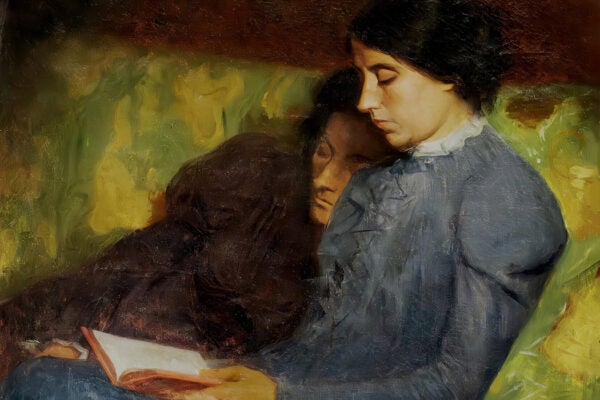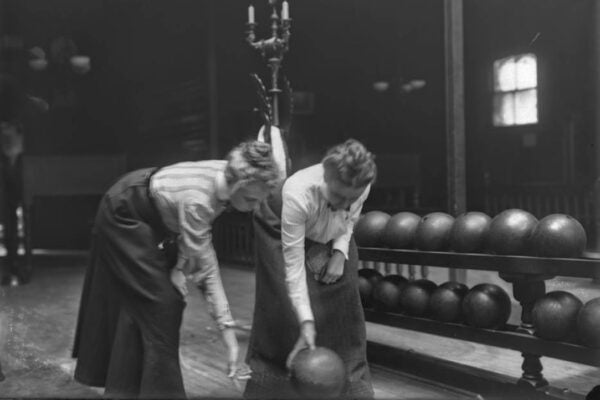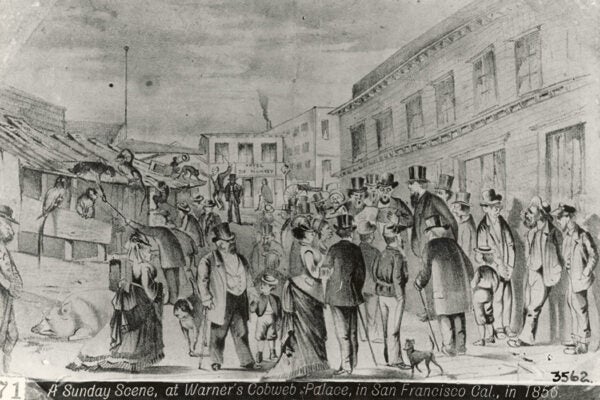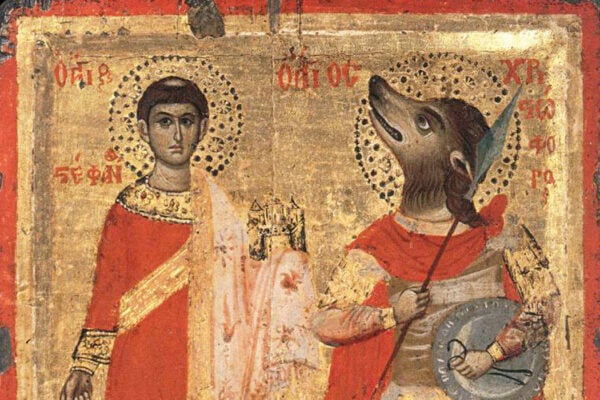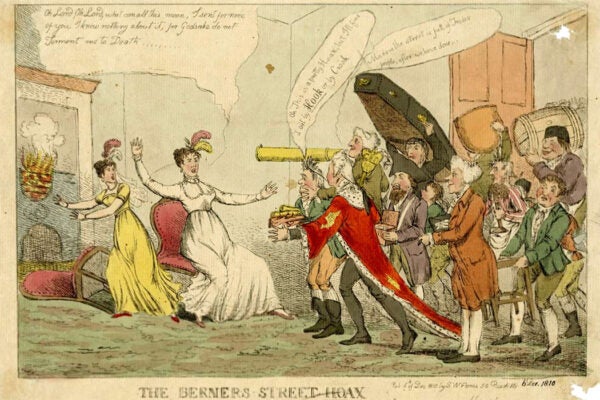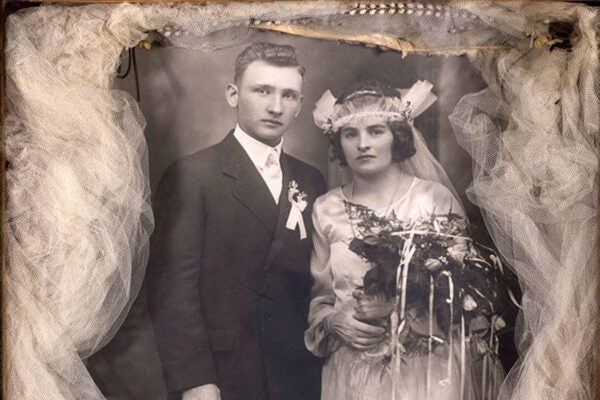The Surprising Imperial History of the Pekingese Dog
Upper-class British women in the early 1900s participated in a craze for Pekingese dogs, signalling the role of empire in their social identities.
Green Sickness, the Disease of Virgins
In the mid-seventeenth century, John Graunt, the “father of English statistics,” claimed dozens of young women in London died of green sickness every year.
The Bowling Alley: It’s a Woman’s World
Even when it was considered socially unacceptable, American women were knocking down pins on the local lanes.
Miners and Monkeys
There were compensations for the hardscrabble life of the Gold Rush—like monkeys and parrots brought to California for companionship and entertainment.
Christopher, the Dog-Headed Saint
Although the tradition has largely faded in the Western church, Saint Christopher sported a canine head through much of Christian history.
The Wonderful World of the Water Ski
Invented in 1922, water-skiing quickly became shorthand for American ideas on beauty, athleticism, and affluence.
Is “Swatting” Rooted in a Prank Craze from the 1800s?
Why did Georgian-era England go mad for dangerous hoaxes, and what can that mania tell us about today’s volatile, content-hungry world?
Coco De Mer: The Magical Derrière of the Sea
Once viewed as a precious item of mysterious origin, the seed of the coco do mer palm, though better understood today, remains a rare and valuable commodity.
First Comes Love
A top divorce lawyer collected strangers’ marriage certificates and other wedding-related ephemera—a testament to her perhaps surprising faith in matrimony.
The Ever-Lengthening History of Tobacco
People have been smoking in the Pacific Northwest for more than 4,500 years.

